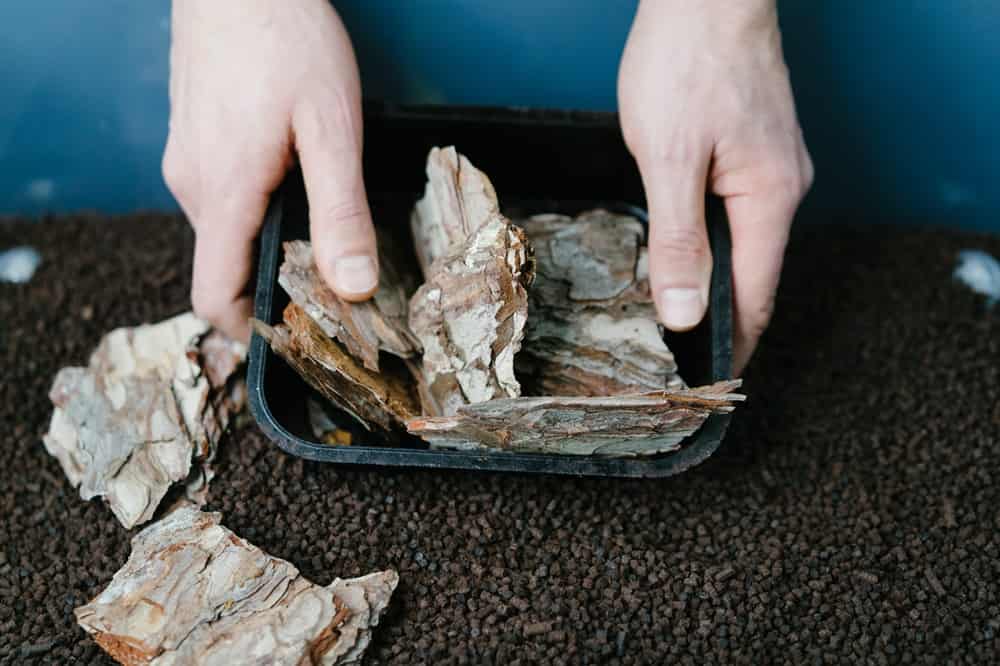
Bpacks launches world’s first bark-based packaging technology
Bpacks, a sustainable packaging start-up, has announced the launch of the world’s first bark-based packaging technology.
The new materials from Bpacks seamlessly integrate with current equipment used for all kinds of plastic rigid packaging production, facilitating the shift to eco-packaging. This is especially important, as the European Union’s policy directives have mandated the transition to biodegradable packaging within the next five years.
Bpacks’ 300 square meters R&D center, which is based in Belgrade, Serbia, enables the production of both finished packaging and granules as substitutes for plastic pellets. The bark-based pellets’ production process closely resembles that of polymers and doesn’t require capital investments to begin molding, since the manufacturing process mirrors that of plastic production.
The Bpacks’ production process starts with compounding, followed by the creation of pellets or sheets, and concludes with the casting of solid packaging, which takes place either by injection molding or thermoforming techniques. The material should fully decompose in moist soil within one to two months. Nowadays, the most common biodegradable polymers such as PLA or PBAT eventually decompose into water and carbon dioxide in compost. However, neither of these adds useful material to it. Bark-based material, on the other hand, turns into compost within a week in an active environment, and enriches the compost with valuable nutrients.
“Traditional bio packaging often struggles to compete with its plastic counterparts in terms of pricing and integration complexity. Our bio-based plastic substitute can be manufactured using existing plastic production equipment, eliminating the need for plastic factories to purchase new equipment. This facilitates overcoming the market penetration challenges that most sustainable packaging startups are facing. Moreover, our packaging is 100% bio-based, with up to 75% of materials sourced from production waste. We also utilize pre-owned equipment, which helps decrease our CO2 emissions,” explained Mikhail Skalkin, Co-founder and CEO of Bpacks.
Utilizing bark, waste of wood production, as its primary raw material, Bpacks ensures that forest resources are not further strained. With estimated bark production levels between 300 and 400 million m3 annually, the startup leverages this abundant resource to create environmentally friendly packaging solutions. Furthermore, studies have highlighted the antimicrobial potential of bark extracts from various tree species, enhancing the functionality of Bpacks’ technology, which emits up to six times fewer CO2 emissions compared to traditional plastic production methods.
Founded by an experienced team of entrepreneurs and Ph.D. scientists, and backed by an international advisory board, Bpacks is a circular economy startup operating in Europe and the United Kingdom. The company’s CEO and co-founder, Mikhail Skalkin, has an extensive entrepreneurial background, including experience in M&A transactions involving large financial companies in Eastern Europe. The founding team also includes Lev Bolshakov, who has a proven record in corporate finance, startup valuations, and M&A, and has closed deals surpassing $300 million in value, Nikolay Semenov, Ph.D., a researcher, engineer, and an expert in polymer materials science. Semenov is in charge of leading the firm’s R&D innovations together with Aleksandra Nešić, Ph.D., who has extensive experience obtaining and characterizing active substances from plants and organic materials. Bpacks is backed by a strong advisory board of international scientists such as professor Maximilian Lackner, Ph.D., a process chemist and engineer with over 200 articles published.
With the global packaging market reaching €1 trillion, and the sustainable packaging sector valued at $285.3 billion, Bpacks targets a very attractive and dynamic market opportunity. The firm aims to capture a slice of the $348.1 billion companies spend annually on plastic-based products, and which has spurred the emergence of novel materials and circular economy ventures, which offer biodegradable, compostable, returnable, and even edible sustainable packaging solutions.
